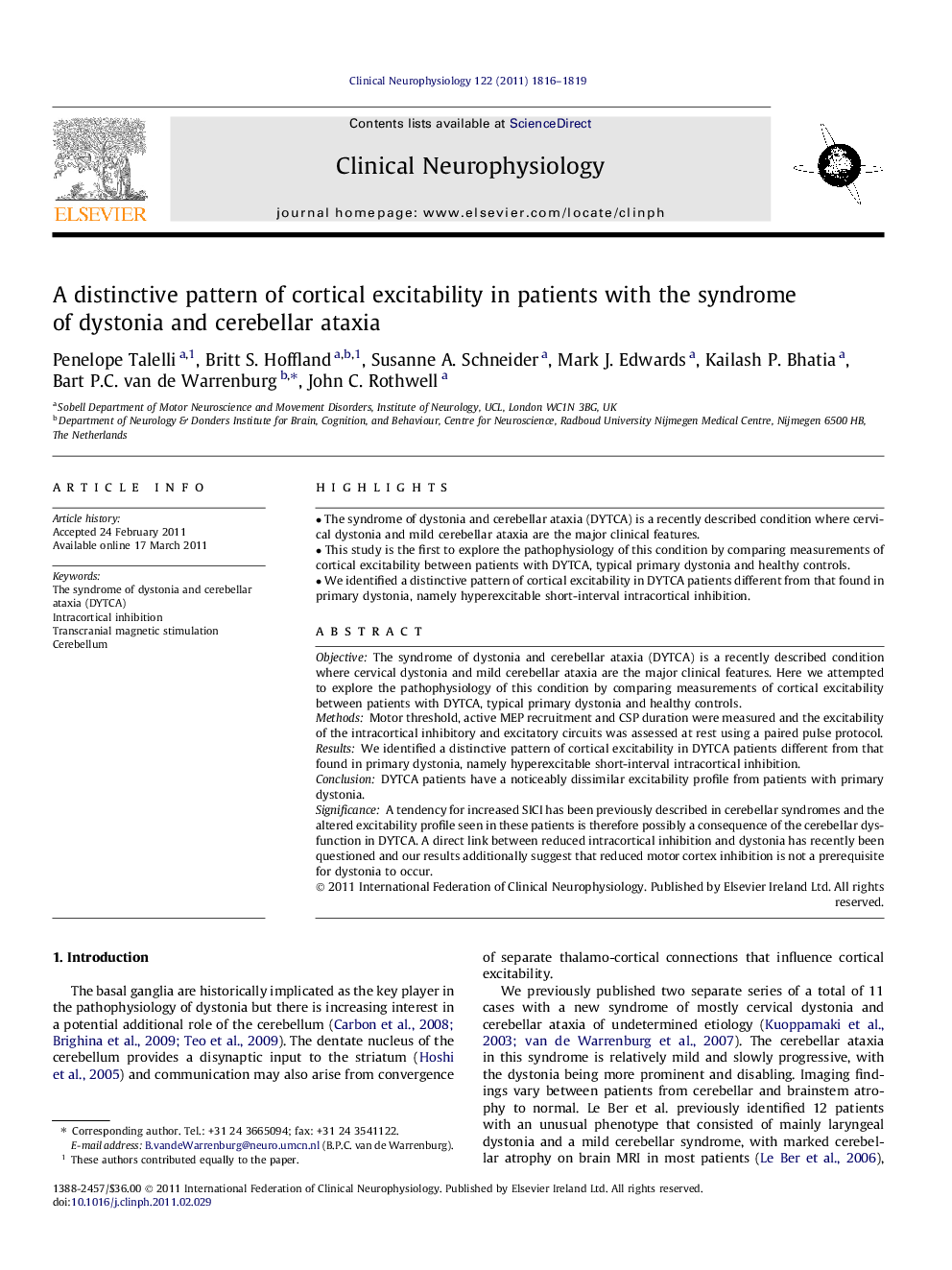| Article ID | Journal | Published Year | Pages | File Type |
|---|---|---|---|---|
| 3045790 | Clinical Neurophysiology | 2011 | 4 Pages |
ObjectiveThe syndrome of dystonia and cerebellar ataxia (DYTCA) is a recently described condition where cervical dystonia and mild cerebellar ataxia are the major clinical features. Here we attempted to explore the pathophysiology of this condition by comparing measurements of cortical excitability between patients with DYTCA, typical primary dystonia and healthy controls.MethodsMotor threshold, active MEP recruitment and CSP duration were measured and the excitability of the intracortical inhibitory and excitatory circuits was assessed at rest using a paired pulse protocol.ResultsWe identified a distinctive pattern of cortical excitability in DYTCA patients different from that found in primary dystonia, namely hyperexcitable short-interval intracortical inhibition.ConclusionDYTCA patients have a noticeably dissimilar excitability profile from patients with primary dystonia.SignificanceA tendency for increased SICI has been previously described in cerebellar syndromes and the altered excitability profile seen in these patients is therefore possibly a consequence of the cerebellar dysfunction in DYTCA. A direct link between reduced intracortical inhibition and dystonia has recently been questioned and our results additionally suggest that reduced motor cortex inhibition is not a prerequisite for dystonia to occur.
► The syndrome of dystonia and cerebellar ataxia (DYTCA) is a recently described condition where cervical dystonia and mild cerebellar ataxia are the major clinical features. ► This study is the first to explore the pathophysiology of this condition by comparing measurements of cortical excitability between patients with DYTCA, typical primary dystonia and healthy controls. ► We identified a distinctive pattern of cortical excitability in DYTCA patients different from that found in primary dystonia, namely hyperexcitable short-interval intracortical inhibition.
